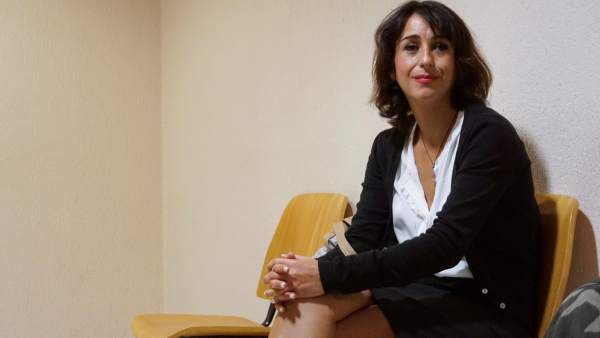El Centro IKO ha presentado los resultados de un estudio de dos años junto con sus socios Child Focus (Bélgica), la Universidad de Amberes, CFPE Enfants Disparus (Francia), la Autoridad Central de Francia y Missing Children Europe. El objetivo: mejorar el bienestar de los niños que han sido retenidos o llevados a otro país por uno de sus padres. La investigación proporcionará más información para los profesionales del derecho y los responsables políticos que participan en tales casos internacionales, en los efectos psicológicos de tal evento en los niños. Se examina qué factores influyen en su bienestar. Los resultados contribuirán a una mejor evaluación del "interés superior del niño".
Aquí puede encontrar un resumen de su resultado. El informe de investigación completo lo estamos traduciendo al castellano en breve.
Comunicación con niños
• En todas las conversaciones con niños, los profesionales deben interactuar con atención e interés genuino para que los niños se sientan respetados y tomados en serio.
• Independientemente de quién habla con el niño (el juez, un mediador, un funcionario judicial, un tutor litem, psicólogo o trabajador social), es importante que este profesional esté entrenado para escuchar a los niños y debe tener tiempo suficiente para la conversación. Tiene que participar en métodos apropiados para la edad del menor, como juegos y dibujos que podrían facilitar el proceso. El lugar debe ser cómodo para los niños. Jueces, mediadores y otros profesionales deben contar con el apoyo de psicólogos entrenados para conversar con niños.
Escuchar a los niños en procedimientos legales luego de un secuestro parental.
• La legislación no debe contener límites de edad para escuchar al niño. Todos los niños son capaces de expresar sus puntos de vista, se les debe dar la oportunidad de ser escuchados. Tal capacidad debería ser interpretada ampliamente.
• Los jueces deberían tener el alcance para evaluar el interés superior del niño en casos particulares.
• Al decidir el caso, el juez debe tener en cuenta los temores del niño (por ejemplo, la lealtad a los padres, conflictos, riesgo grave ...) y lo que sería mejor para el desarrollo saludable del niño. También las consideraciones deben ser hechas por otros profesionales que escuchan al niño e informan al juez y a los mediadores. El juez podría indicar en qué medida hará satisfacer las necesidades, deseos y/o miedos del niño al (no) retorno.
• La sentencia debe ser accesible para el niño. Si está escrito en lenguaje legal, el juez, un mediador, un funcionario judicial, un tutor ad litem, un psicólogo o un trabajador social, deberían explicarle su contenido y sus razones.
• Los jueces, mediadores y otros profesionales que escuchan a los niños deberían intercambiar información y buenas prácticas para escucharlos. Tales intercambios pueden tener lugar a nivel nacional e internacional (por ejemplo: talleres con casos reales; talleres basados en filmaciones, mediación o entrevistas de psicólogos o jueces, etc.).
• Los jueces, mediadores y otros profesionales deben elegir sus palabras cuidadosamente cuando hablan con niños. El término 'secuestro' puede causar un trauma adicional, pero por otro lado, los profesionales no deben subestimar la gravedad del incidente.
• Los jueces, mediadores y otros profesionales que escuchan al niño deben prestar atención a la forma en que que el niño experimenta sus circunstancias, en lugar de hechos simples.
• Los adultos deben tener cuidado de no transmitir sus propias inseguridades a los niños condescendiéndoles o decidir en su nombre que ser escuchado (en el tribunal) sería traumático para ellos. Jueces, los mediadores y otros profesionales no deben ser excesivamente cautivantes con el fin de protegerlos.
Dar el peso apropiado a las opiniones del niño
• Los niños deben recibir apoyo adecuado para una audiencia. Los niños no tienen la responsabilidad de decidir en el caso, debe haber transparencia en el procedimiento, dándole peso a los puntos de vista del niño y así se evitar decepciones y expectativas poco realistas que pueden ser dañinas para su bienestar.
• Al evaluar su madurez, los jueces y otros profesionales deben tener en cuenta cuenta las diferencias de personalidad entre los niños. Niños tímidos, no seguros de sí mismos no tan persuasivos en su habla y comportamiento deberían tener las mismas oportunidades de expresar su puntos de vista a su manera.
• La capacidad y la madurez deben evaluarse caso por caso.
• Los jueces deben ser transparentes en su decisión sobre el peso que le dieron a las opiniones del niño, además, si los niños no fueron escuchados, razones para esta decisión.
Apoyando a las víctimas de un secuestro parental
• Los profesionales deben alentar a los padres a llegar a una solución amistosa en el mejor interés de el niño.
• El apoyo profesional debe estar disponible para los niños durante y después del regreso (por ejemplo, a través de un psicólogo, trabajador social ...). El juez podría sugerirlo en la sentencia como un requisito para el regreso del niño. Sin embargo, dados los efectos a largo plazo de la sustracción de menores, es igualmente importante que el apoyo profesional esté disponible para los niños y sus familias después del regreso.
Organizar un grupo de pares podría ayudar a los niños a manejar su experiencia dando y
recibiendo apoyo con otros niños y padres que han pasado por una situación similar.
• El arresto de un padre debe ser utilizado como último recurso solamente, ya que esto es muy traumático para los niños especialmente cuando el padre está siendo arrestado, en presencia de los niños.
Otras recomendaciones
• La jurisdicción concentrada puede fortalecer la experiencia y el conocimiento de los jueces sobre audiencias con niños.
• Los juicios deben ser públcios en todas las jurisdicciones.
• Es necesaria una mayor investigación interdisciplinaria y de gran escala sobre los efectos (a largo plazo) de un secuestro parental.





